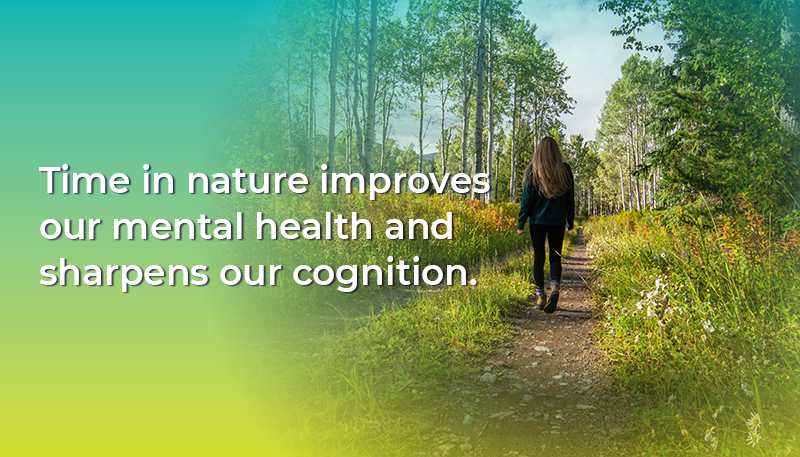
In our digitally connected world, where 9 in 10 Americans go online daily and 41% use the internet almost constantly, we are spending less time outdoors than ever. Yet mounting scientific evidence reveals remarkable benefits when we connect with nature.
Nature boosts cognitive function and mental well-being. Green spaces promote mental development in children and better attention in adults. Australian researchers discovered that students who gazed at a flowering rooftop for just 40 seconds made fewer mistakes on intellectual tasks. A Danish study of over 900,000 residents found children with greater green space exposure had 55% lower risk of psychiatric disorders later in life.
Feeling connected to nature benefits well-being regardless of time spent outdoors. While devoting at least two hours weekly in nature provides optimal benefits according to UK research, the key factor may be in the connection itself. This nature relatedness, the sense that one's identity is intertwined with the natural world, consistently predicts happiness and can even buffer effects of social isolation. People who feel connected to nature report greater well-being even when they can't physically spend extensive time outdoors.
All natural spaces provide benefits, from remote wilderness to urban parks. Research reveals that both forests and aquatic environments offer psychological restoration, with biodiverse, remote locations potentially providing the strongest benefits. However, urban parks and street trees also produce meaningful positive outcomes, making nature's healing power accessible even in city settings.
In our digitally connected world, where 9 in 10 Americans go online daily and 41% use the internet almost constantly, we are spending less time outdoors than ever. Yet mounting scientific evidence reveals remarkable benefits when we connect with nature.
Nature boosts cognitive function and mental well-being. Green spaces promote mental development in children and better attention in adults. Australian researchers discovered that students who gazed at a flowering rooftop for just 40 seconds made fewer mistakes on intellectual tasks. A Danish study of over 900,000 residents found children with greater green space exposure had 55% lower risk of psychiatric disorders later in life.
Feeling connected to nature benefits well-being regardless of time spent outdoors. While devoting at least two hours weekly in nature provides optimal benefits according to UK research, the key factor may be in the connection itself. This nature relatedness, the sense that one's identity is intertwined with the natural world, consistently predicts happiness and can even buffer effects of social isolation. People who feel connected to nature report greater well-being even when they can't physically spend extensive time outdoors.
All natural spaces provide benefits, from remote wilderness to urban parks. Research reveals that both forests and aquatic environments offer psychological restoration, with biodiverse, remote locations potentially providing the strongest benefits. However, urban parks and street trees also produce meaningful positive outcomes, making nature's healing power accessible even in city settings.